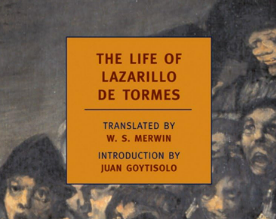Chapter XVI: How Lazaro Decided to Marry Again
byChapter XVI: How Lazaro Decided to Marry Again begins with a glimpse into Lazaro’s renewed hope, sparked by an unexpected shift in his luck. After years of enduring hardship, he finds himself no longer driven solely by survival but by the idea that perhaps destiny has finally turned in his favor. He reflects on the ironies of life, where the undeserving seem to rise effortlessly while the thoughtful and cautious are often left with nothing. His belief that fate has wronged him repeatedly is a theme that continues to shadow his choices, particularly in this chapter where a new and questionable marital opportunity presents itself.
The chapter takes a strange turn when Lazaro, going about his usual attempts to earn a meal, is suddenly treated with unusual warmth by women in a city home. Their friendly welcome is based on a mistaken identity, but once they realize who he truly is—and more importantly, that he was the last to be with Father Anselmo—the mood quickly shifts. Grief overtakes the room as the women, now revealed as Anselmo’s secret household, confront the painful news of his passing. Lazaro is bewildered by their reaction and even more so when they express resentment over his position as the presumed heir. With legal fears looming and emotions running high, he’s persuaded to share what little inheritance there is, unaware that his acceptance marks the start of a deeper trap.
In an effort to make peace and possibly secure some comfort, Lazaro agrees to marry the grieving widow, encouraged by her family’s insistence. However, the sincerity of this proposal soon unravels into a string of mock ceremonies and half-hearted rituals that resemble more of a cruel prank than a union. As each phase of the supposed wedding unfolds, Lazaro becomes increasingly aware of the deception but feels powerless to withdraw. He’s mocked, mistreated, and eventually physically threatened, leaving him with no choice but to flee the farcical arrangement altogether. His escape is frantic and shameful, culminating in a chaotic scene at a local church where townspeople, seeing his disheveled state, mistake him for something demonic or insane.
This moment of public disgrace not only humiliates Lazaro but also emphasizes the broader theme of appearance versus reality. The sanctity of marriage, the respect for religious figures, and the reliability of family ties are all questioned through Lazaro’s ordeal. Despite his efforts to rise above his misfortunes and seek a dignified life, he is repeatedly pulled into absurd and often demeaning situations. His story invites readers to reflect on how easily people are misled by social conventions and how institutions like marriage can be manipulated for personal gain. Even the idea of inheritance—a symbol of stability—is treated as a tool for trickery and exploitation.
Lazaro’s resilience becomes the central focus as he navigates one blow after another. Rather than surrender completely to despair, he persists in the hope that his dignity might yet be restored. This resilience is not driven by blind optimism but by a hardened acceptance that life rarely offers fairness. His character embodies a type of endurance familiar to many—those who continue despite setbacks, laugh when crying feels easier, and carry on not because they expect better but because there is little alternative. Through satire and irony, this chapter reveals much about the human spirit, especially when survival depends more on wit and nerve than fortune or justice.
Adding historical context, this chapter can also be read as a critique of 16th-century Spanish society, where social mobility was often governed less by merit and more by manipulation. Hermits, supposedly devoted to solitude and spiritual reflection, are shown to lead lives entangled with earthly desires and family drama. Likewise, marriage is not a sacred bond here but a theatrical performance orchestrated for inheritance and status. The comic exaggeration used by the author functions as a sharp commentary on how institutions that claim virtue are often corrupted by human weakness. Readers today might see parallels in how appearances can be deceiving and how societal roles sometimes serve to disguise deeper dysfunctions.
In a modern lens, Lazaro’s story echoes the timeless struggle of those caught between poverty and the illusion of social advancement. He’s a reminder that behind every act of desperation lies a history of disillusionment. Yet, despite being used, tricked, and shamed, he survives—not just physically, but with enough self-awareness to narrate his journey with biting wit. The chapter, while humorous on the surface, carries a darker undercurrent about the cost of survival in a world ruled more by opportunism than justice. Readers are left with a lasting impression of Lazaro not as a fool, but as a mirror to society’s contradictions, where folly often masquerades as wisdom and cruelty wears the mask of custom.

